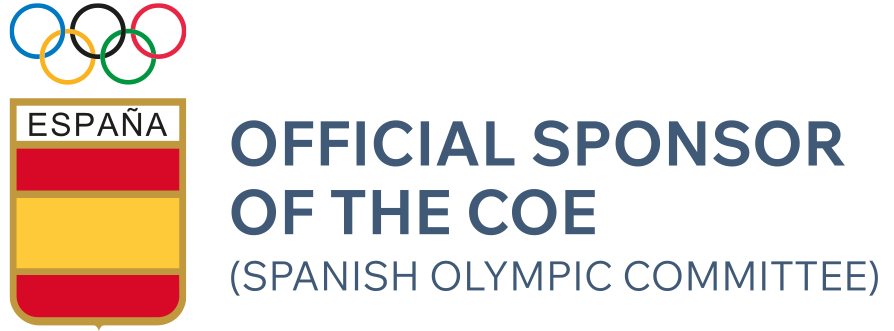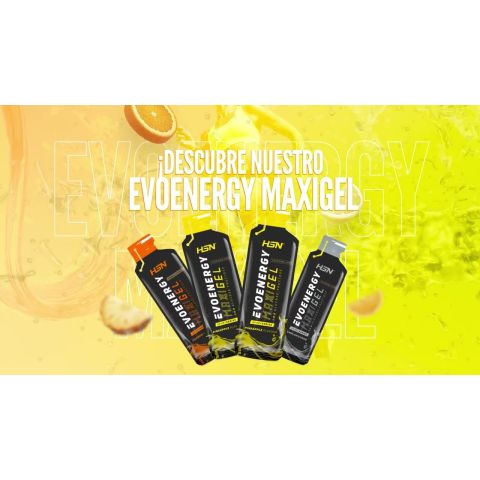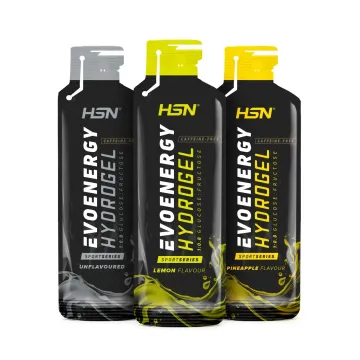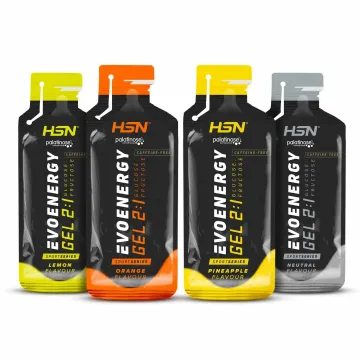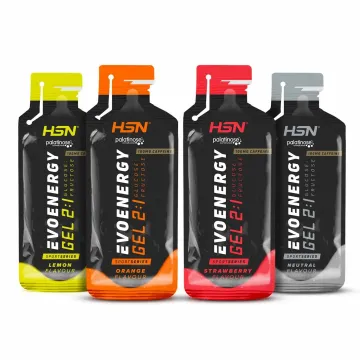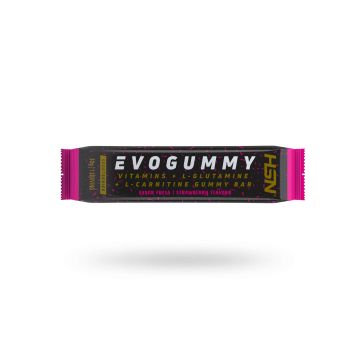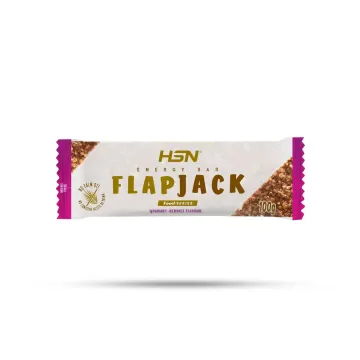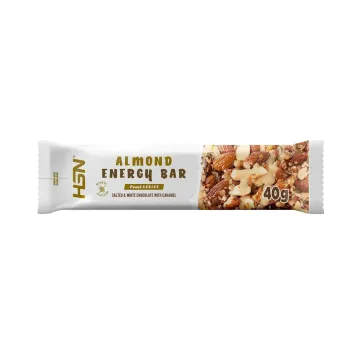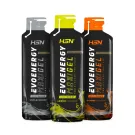- Yes, a bigger gel is possible! Introducing Evoenergy Maxigel, with 40% more content than Evoenergy Gel.
- Contains 33% more caffeine per gel compared to its non-maxi version. 100mg per full gel - An effective punch!
- High carbohydrate content, 60g per gel - With 50% of its content as complex carbohydrates.
- 1:0.8 ratio of Glucose to Fructose - The most effective ratio for intra-workout carbohydrate consumption.
- High sodium content (120mg) to replenish mineral salts during physical exercise.
- Mild flavours | Light consistency | Doesn't dry out your mouth or require additional water.
Evoenergy Maxigel (With Caffeine) - 40% more for the most demanding athletes
Evoenergy Maxigel With Caffeine from SportSeries is the stimulated version of our new Evoenergy Maxigel, a gel format with greater content compared to our traditional Evoenergy Gel. It is ideal for people doing short events and carrying only one gel, or for those seeking a higher energy nutrient intake in each use of a single-dose gel.
The carbohydrate ratio used, as well as its quantity, and the mineral salt content have been thoroughly studied to provide you with what you need in an intra-workout gel. Each gel contains 60g of carbohydrates and 120mg of sodium, with no fats or proteins.
Enjoy larger gels, ideal for the most demanding athletes who need more in each serving, say goodbye to the need for two gels!
Should I switch to Evoenergy Maxigel? Key considerations
Evoenergy Maxigel vs Evoenergy Gel
Evoenergy Gel is our classic single-dose gel presentation of 50g.
Our traditional gels quickly became one of our best-sellers, as energy gels are widely used by athletes of all levels to provide energy nutrients conveniently and quickly during workouts, especially endurance events.
However, based on feedback from regular users of our gels and our HSN athletes, we identified the need for a higher intake option. While Evoenergy Gel is the benchmark for energy gels and is sufficient for athletes who need to take a couple of gels during their events or workouts, along with an isotonic drink, for other athletes who do not consume carbohydrate and electrolyte drinks, or who are undertaking very long and/or intense events, a higher content version is more practical: that's Evoenergy Maxigel.
With a revamped texture compared to its standard version, lighter but not Hydro, it allows for easier intake without a high concentration of carbohydrates, making it lighter on the palate and easier to swallow. Our Evoenergy Maxigel does not require simultaneous water consumption for its use, as despite its hypertonic concentration, it perfectly balances with isotonic drinks or the regular intake of sports drinks or water with mineral salts during an event.
If you are looking for the 'Maxi' version of Evoenergy Gel with Caffeine, you've found it!
With a light texture ideal for easy intake
Texture preference in gels is very personal. Some athletes prefer gels with a very light and watery consistency and mild flavours, so it almost doesn't feel like using an energy gel. Meanwhile, many other athletes prefer more concentrated gels, especially in 50g formats, to get a high carbohydrate intake quickly, and often, use it with water: this is the usual way our traditional Evoenergy Gels are used.
Evoenergy Gel is developed as a middle ground between both types, providing a lighter consistency that's easy to take, not heavy or 'nutrient-dense' to taste, and closer to an isotonic drink than traditional gels, thus not needing water intake alongside.
However, the carbohydrate concentration remains high. These are not hydro gels with a quasi-liquid consistency but traditional gels nutritionally, with a carbohydrate content of approximately 1ml = 1g, but with a lighter consistency.
If you are looking for a larger gel (70ml), with an excellent balance between texture (consistency) and nutritional content, try Evoenergy Maxigel.
Glucose 1 : Fructose 0.8 - A scientifically studied ratio
Athletes have evolved over the years in managing their nutrition, especially intra-workout nutrition for endurance sports.
Previously, the focus was solely on the amount of carbohydrates used around an endurance event. We now know the recommended carbohydrate intake per hour during training or endurance events ranges from 30g for shorter events to 120g for the most demanding events, requiring digestive training to reach these amounts.
However, the new debate over the past decade has been on how to combine monosaccharide sources for optimal absorption. We know that, beyond a certain amount of carbohydrates per hour, combining glucose and fructose sources is necessary for efficient absorption, though the exact ideal ratio is still uncertain. Frequent recommendations range from 1:0.8 to 2:1.
Jeukendrup, possibly the world's leading expert in sports nutrition, confirms there is no 'ideal ratio'. However, he suggests that 2:1 ratios are more suitable for lower carbohydrate intakes, while the 1:0.8 ratio is the best choice when higher carbohydrate intakes are consumed per hour.
Given that Evoenergy Maxigel provides 60g of carbohydrates per dose, the 1:0.8 ratio is more suitable as it is easy to reach higher carbohydrate consumption levels with isotonic drinks or bars. Therefore, Evoenergy Maxigel is ideal for high-demand events.
High sodium content, the key mineral salt you can't miss
The primary electrolyte lost through sweat is sodium. While many gels on the market contain other mineral salts, the main focus is on sodium replenishment. This is why sodium chloride is the essential mineral salt in a gel.
To avoid creating an overly salty gel and considering that most gel consumption is accompanied by an isotonic drink with a full spectrum of electrolytes, we developed Evoenergy Maxigel with a significantly high sodium content to prevent hyponatremia during sports and help maintain good blood osmotic pressure.
120mg of sodium per gel! An effective amount.
Caffeine version - When to choose it over the non-caffeine version
Evoenergy Maxigel, like the original Evoenergy Gel, has a caffeine version and a non-caffeine version, catering to different user needs.
The caffeine version of Evoenergy Maxigel provides 100mg per sachet, a considerable amount equivalent to a strong cup of coffee, but in this case within an energy gel.
It is ideal for use before workouts or competitions, serving as a practical way to quickly and easily intake a large amount of carbohydrates before starting an event.
While its ideal use is during the workout itself, we recommend using the caffeine version when experiencing significant nervous fatigue, as caffeine can reduce the subjective perception of physical effort when consumed at 4mg/kg of body weight.
We also recommend using it for daytime events and not close to bedtime, as well as during the first half of the workout or event, avoiding its use in the last 45 minutes, where non-caffeine versions are preferable.
Delicious flavours - Light - Ideal for use without water
The flavours of Evoenergy Maxigel are mild as they are lightly flavoured and contain no sweeteners.
We avoided creating intensely flavoured gels, as excessive sweetness or high amounts of flavours can cause mouth dryness and an unpleasant sensation. This was considered in the initial development of Evoenergy Gel, and in the 'maxigel' version, the lighter consistency makes the taste even less intense.
Thanks to this, our maxigels do not require additional water consumption and can be taken with the usual isotonic drink consumed during sports without needing to adjust the liquid volume to balance the gel's hypertonic nutrient content.
Enjoy using a more straightforward energy gel without needing to dilute its flavour thanks to HSN's balanced taste development.
HSN recommends: Combine Evoenergy Maxigel + Evotonic + Evogummy
A perfect balance of HSN products for demanding endurance events includes:
- Evocarbs: use 2 scoops per hour, providing over 35g of carbohydrates.
- Evoenergy Maxigel: 1 per hour, adding 60g of carbohydrates, for a total of 95g per hour.
- (Optional) Evogummy: half a bar per hour, adding another 30g of carbohydrates, for a total of 125g per hour.
With these amounts, you have covered the total carbohydrate needs for sufficient energy intake during any event, regardless of your energy requirements.
How long does it take to take effect - Make the most of it
Evoenergy Maxigel contains rapidly absorbed carbohydrates, as aside from fructose, maltodextrin is a polymer with a fast hydrolysis rate, easy to digest, and quickly available in the blood.
The timing of Evoenergy Maxigel with caffeine consumption is more about its caffeine content, as this alkaloid is known to have a maximum blood concentration time of around 45-60 minutes. Therefore, it is ideal to consume the gel 1 hour before the physical or psychological wall you expect to experience or one hour before the event starts, aligning the release of carbohydrates and maximum caffeine concentration with the most needed training moment.
Bibliographical references
- Saunders, M. J., Luden, N. D., & Herrick, J. E. (2007). Consumption of an oral carbohydrate-protein gel improves cycling endurance and prevents postexercise muscle damage. Journal of Strength and Conditioning Research, 21(3), 678–684.
- Cruz, R. S. de O., de Aguiar, R. A., Turnes, T., Guglielmo, L. G. A., Beneke, R., & Caputo, F. (2015). Caffeine Affects Time to Exhaustion and Substrate Oxidation during Cycling at Maximal Lactate Steady State. Nutrients, 7(7), 5254–5264.
- Laurent, D., Schneider, K. E., Prusaczyk, W. K., Franklin, C., Vogel, S. M., Krssak, M., … Shulman, G. I. (2000). Effects of Caffeine on Muscle Glycogen Utilization and the Neuroendocrine Axis during Exercise 1. The Journal of Clinical Endocrinology & Metabolism, 85(6), 2170–2175.
- Patterson, S. D., & Gray, S. C. (2007). Carbohydrate-gel supplementation and endurance performance during intermittent high-intensity shuttle running. International Journal of Sport Nutrition and Exercise Metabolism, 17(5), 445–455.
- Kozlowski, K. F., Ferrentino-Depriest, A., & Cerny, F. (2021). Effects of Energy Gel Ingestion on Blood Glucose, Lactate, and Performance Measures During Prolonged Cycling. Journal of Strength and Conditioning Research, 35(11), 3111–3119.
- Phillips, S. M., Turner, A. P., Sanderson, M. F., Sproule, J., & Ward, S. A. (2012). Carbohydrate gel ingestion significantly improves the intermittent endurance capacity, but not sprint performance, of adolescent team games players during a simulated team games protocol. European Journal of Applied Physiology, 112(3), 1133–1141.
 Before
Before After
After During
During Morning
Morning Afternoon
Afternoon Night
Night Before
Before After
After During
During Morning
Morning Afternoon
Afternoon Night
Night Before
Before After
After During
During Morning
Morning Afternoon
Afternoon Night
Night


